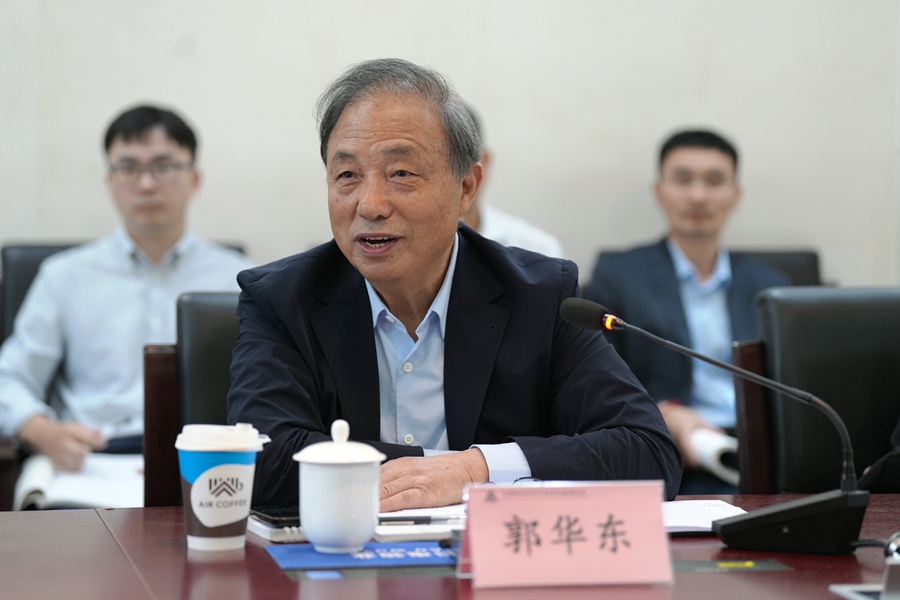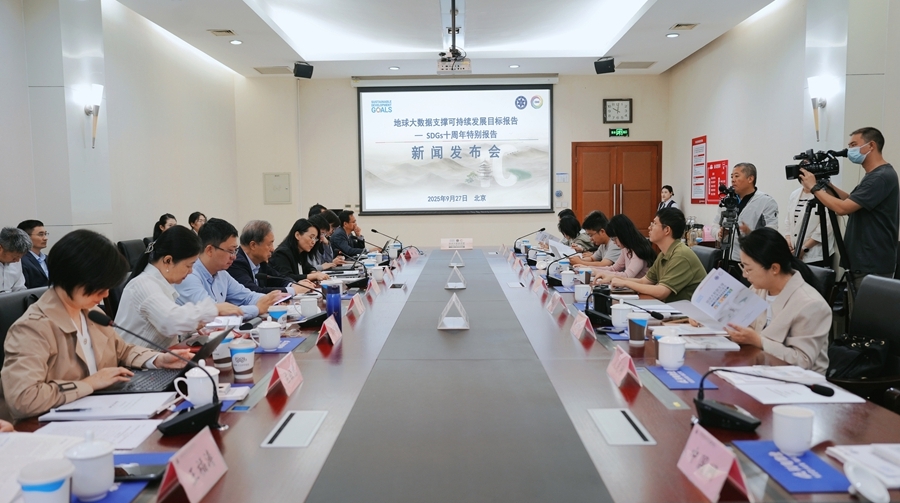China has met or nearly achieved two-thirds of its United Nations' SDG indicators ahead of the 2030 deadline, outpacing slower-than-expected global progress, according to a new international study.

The International Research Center of Big Data for Sustainable Development Goals (CBAS) holds a press conference in Beijing for the research center's new report, Sept. 27, 2025. [Photo provided to China.org.cn]
The International Research Center of Big Data for Sustainable Development Goals (CBAS) found that 60.5% of indicators measuring China's progress toward the Sustainable Development Goals (SDGs) were close to or already met by 2024. The report, released Saturday on the U.N. website, involved more than 40 research institutions.
The U.N. adopted 17 SDGs in 2015 as a blueprint for addressing poverty, climate change and inequality by 2030. The new report tracks progress on seven of these goals worldwide and evaluates China's advancement across all 17 targets using remote sensing, ground observations, statistical surveys, and international datasets.
According to the report, China has shown notable achievements across multiple goals. The country now hosts 39% of the world's installed wind power capacity and accounted for 68.21% of newly added global capacity in 2024. More than 90% of urban residents have convenient access to public transport, and all governments at the provincial level have adopted disaster risk reduction strategies, both having already met the 2030 targets ahead of schedule.
China has achieved substantial environmental gains, with forest coverage surpassing 25% and PM2.5 density falling 30.2%. The average mass of floating marine debris decreased by more than 71.1% between 2020-2024 compared to 2015-2019. Water stress fell from 73.3% to 61.7%, while agricultural productivity more than doubled since 2015.

The cover of the report "Big Earth Data in Support of the Sustainable Development Goals: Special Report for a Decade of the SDGs." [Photo provided to China.org.cn]
Global progress fell short of expectations, with only 16.9% of 59 tracked indicators on pace to meet 2030 targets. Major obstacles include worsening food insecurity, strained freshwater resources, sluggish clean energy adoption, rising heat-related deaths and ongoing coastal water pollution.
The report also highlighted China's role in supporting global sustainable development. Africa's rice planting area expanded by 15.7%, contributing more than 20% of the global net increase, with 25 countries achieving expansion. China–Africa agricultural cooperation has effectively enhanced the production of staple crops in food security–vulnerable regions. Chinese innovation and mass production have also made solar power investment returns competitive with coal and hydropower in roughly 75% of global regions.
In a written comment, former President of Mauritius Ameenah Gurib-Fakim commended the efforts of the CBAS, stating, "As we celebrate the decade of the SDGs, the report presents some fascinating findings showcasing yet again the need for accurate and credible data in order to assess progress on the SDGs and also to make recommendations where there are gaps. The efforts of CBAS are to be commended."
Guo Huadong, director-general of the International Research Center of Big Data for Sustainable Development Goals, introduces the research center's new report, Sept. 27, 2025. [Photo provided to China.org.cn]
"The report not only provides a scientific summary of the past decade's progress, but also delivers precise data support and decision-making references for implementing the 2030 Agenda," said Guo Huadong, director-general of the CBAS and an academician of Chinese Academy of Sciences.
"Indicator tracking is only the starting point," he said. "Looking ahead, we will deepen the application of Big Earth Data in multi-scale monitoring, scenario simulation and policy optimization, develop more efficient evaluation tools and enhance AI-enabled analysis to build a new scientific paradigm for global sustainable development."
With less than five years left until 2030, the report calls on the international community to expand shared data infrastructure, strengthen links between monitoring and policy simulation, and promote cross-goal governance in climate change, the energy transition and ecosystem protection.


 Share:
Share: 





 京公網安備 11010802027341號
京公網安備 11010802027341號